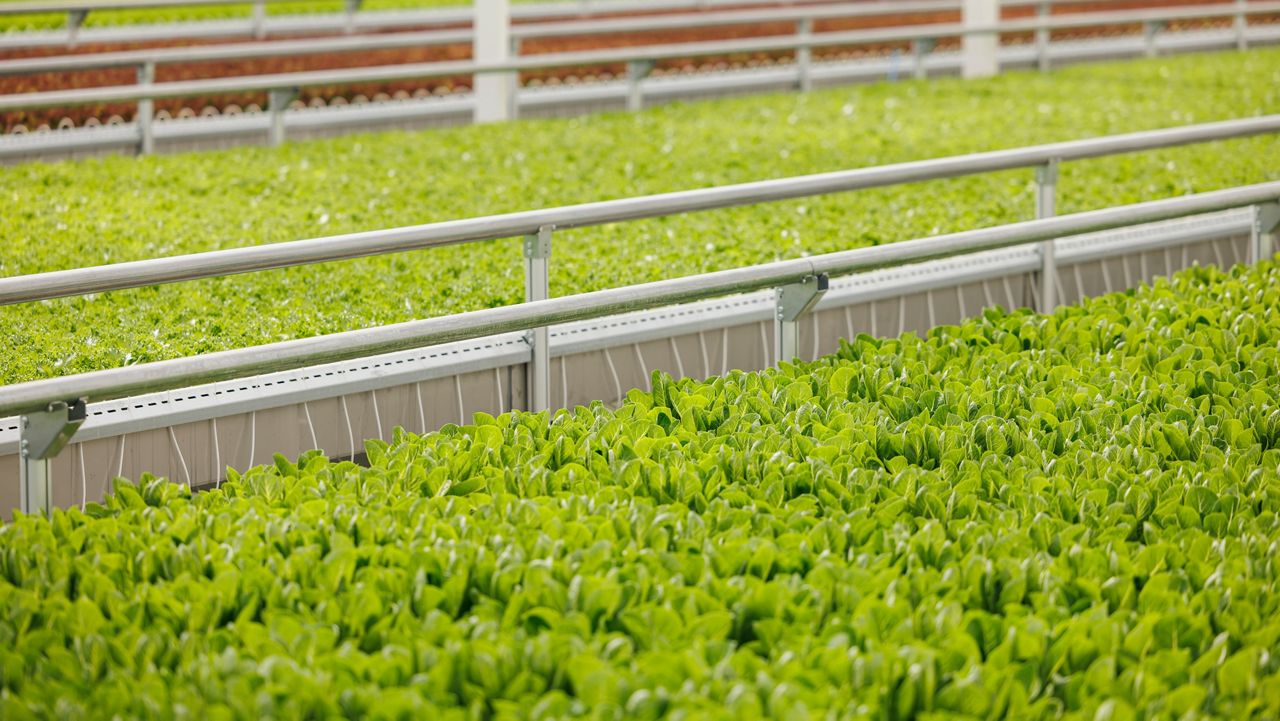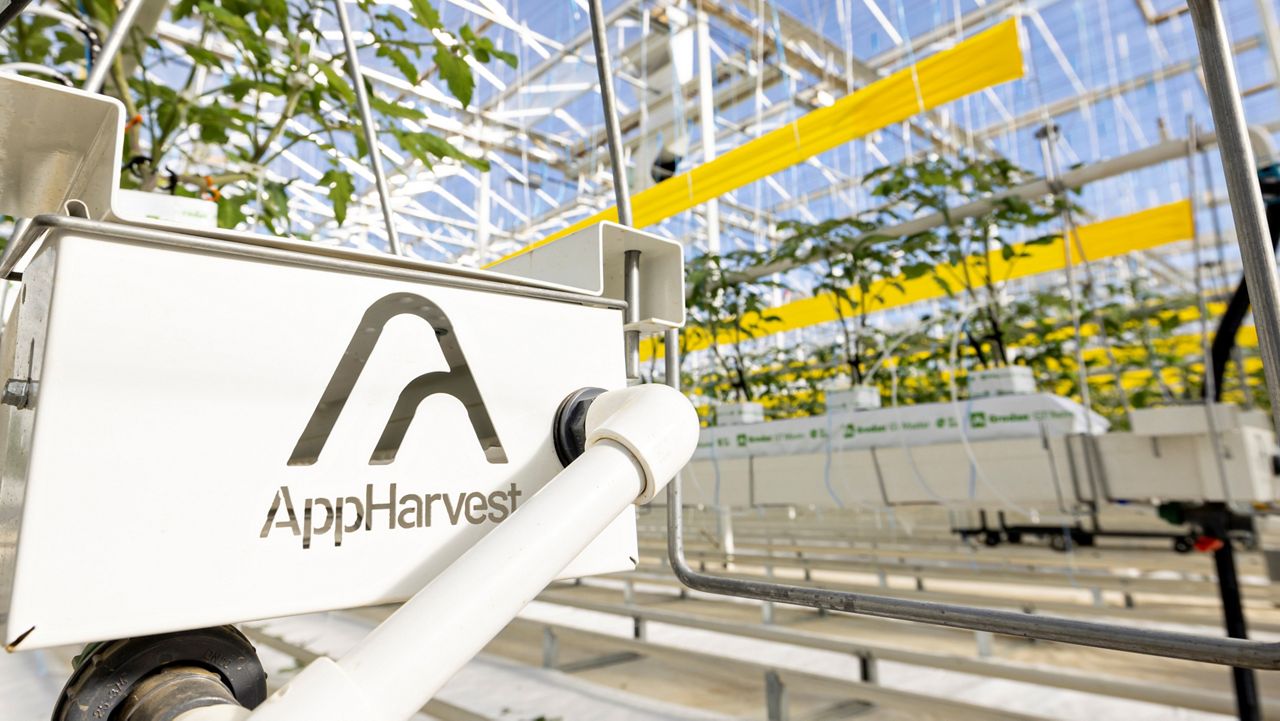MOREHEAD, Ky. — AppHarvest, the Kentucky-based sustainable agri-tech business, is pursuing Chapter 11 bankruptcy in pursuit of a "financial and operational transition," according to filings made early Monday morning.
What You Need To Know
- AppHarvest is pursuing Chapter 11 bankruptcy in pursuit of a "financial and operational transition"
- AppHarvest operates four indoor farms in Appalachian Kentucky
- After spiking at over $35 per share in 2021, the company's stock price sat at $0.34 when markets closed Friday
- Business operations will continue at the farms, including shipping product to top national grocery store chains, restaurants and food service outlets
The company made the $30 million debtor-in-possession filings in bankruptcy court in the Southern District of Texas. After spiking at over $35 per share in 2021, the company's stock price sat at $0.34 when markets closed Friday.

AppHarvest operates four indoor farms in Appalachian Kentucky: a 60-acre flagship tomato farm in Morehead, a 15-acre salad green farm in Berea, a tomato farm in Richmond and a 30-acre farm in Somerset growing berries and cucumbers.
The company that owns AppHarvest's Berea farm signaled its intentions of terminating their lease on the property earlier this month, the Herald Leader reported.
Business operations will continue at the farms, including shipping product to top national grocery store chains, restaurants and food service outlets, AppHarvest said.
“The AppHarvest board of directors and executive leadership evaluated several strategic alternatives to maximize value for all stakeholders prior to the Chapter 11 filing,” said AppHarvest CEO Tony Martin. “The Chapter 11 filing provides protection while we work to transition operation of our strategic plan, Project New Leaf, which has shown strong progress toward operational efficiencies resulting in higher sales, cost savings and product quality.”
AppHarvest’s farms are designed to grow produce using sunshine, rainwater and up to 90% less water than open-field growing, the company claims—all while producing yields up to 30 times that of traditional agriculture and preventing pollution from agricultural runoff.









